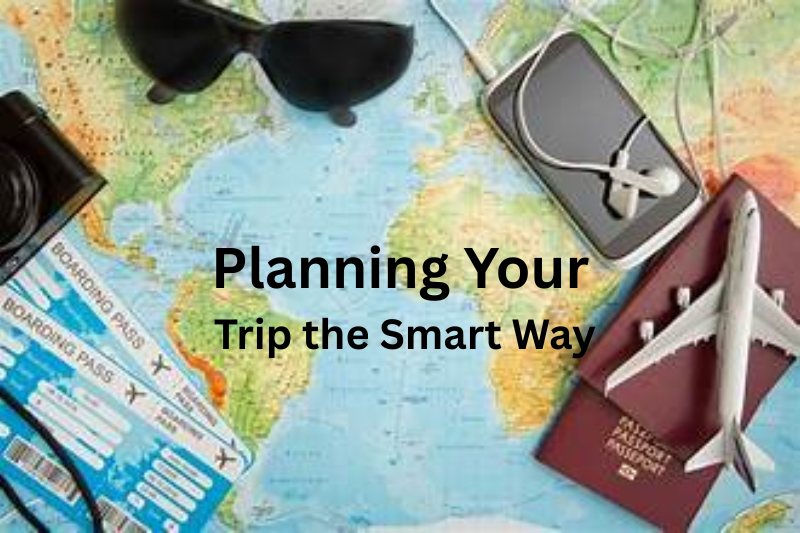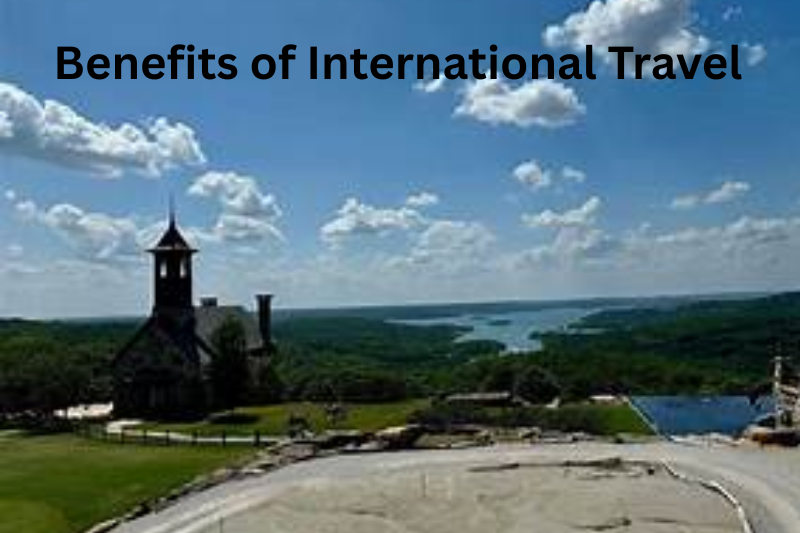Traveling internationally can be one of the most exciting and eye-opening experiences of your life. It exposes you to new cultures, cuisines, and perspectives that can completely change the way you see the world. But let’s be honest—international travel also comes with its fair share of challenges. That’s why it’s important to be prepared, both mentally and practically.
This international travel tips guide covers everything from pre-trip planning to staying safe abroad, along with the major benefits and potential drawbacks of traveling internationally.
1. Planning Your Trip the Smart Way

Every successful journey begins long before you step on a plane. Good planning saves you time, money, and stress. Start by researching your destination thoroughly. Learn about its culture, weather, safety conditions, and entry requirements. Some countries require visas or vaccinations before entry, so handle these details early to avoid last-minute surprises.
Key planning steps:
- Check your passport validity—most countries require at least six months of validity beyond your travel dates.
- Apply for visas if needed, and read the fine print on entry requirements.
- Purchase travel insurance to cover medical emergencies, trip cancellations, or lost luggage.
- Review local laws and customs—what’s normal in one country may be offensive or even illegal in another.
Proper preparation gives you peace of mind and helps you focus on enjoying your trip instead of dealing with avoidable issues.
2. Packing Smart and Light
Packing for an international trip can be tricky, especially when you’re unsure what you’ll need. The golden rule is to pack light but smart. Overpacking can make travel tiring and expensive if your luggage exceeds weight limits.
Practical packing tips:
- Choose lightweight, versatile clothing that can be layered and mixed for different looks.
- Keep important documents (passport, visas, travel insurance, flight tickets) in your carry-on.
- Pack medications and basic first-aid supplies, especially if you’re traveling to areas with limited medical facilities.
- Bring adapters and power converters since plug types differ across countries.
- Leave some space in your suitcase for souvenirs or items you’ll buy abroad.
Efficient packing not only keeps you mobile but also reduces stress when moving between destinations.
3. Managing Money Overseas
Handling money abroad can be confusing if you’re not prepared. Exchange rates fluctuate, and transaction fees can add up quickly. It’s important to plan how you’ll access and use your funds safely and efficiently.
Financial tips for international travel:
- Notify your bank or card provider before traveling to prevent your card from being blocked for suspicious activity.
- Carry a mix of payment methods, including cash, debit/credit cards, and possibly a prepaid travel card.
- Use ATMs carefully, preferably those inside banks or shopping centers for better security.
- Avoid exchanging large sums at airport kiosks—they usually offer poor exchange rates.
- Track your spending daily so you don’t exceed your travel budget.
Managing your finances wisely ensures you won’t face unexpected money problems while abroad.
4. Staying Connected While Traveling
In today’s world, staying connected isn’t a luxury—it’s a necessity. Whether it’s using navigation apps, staying in touch with family, or handling online banking, having internet access is essential during international trips.
Connectivity options:
- Buy a local SIM card at your destination for affordable calls and data.
- Consider an international eSIM if your phone supports it; these are convenient and often cheaper than roaming.
- Download offline maps and translation apps before your trip for areas with limited internet.
- Use Wi-Fi in hotels, cafes, or public areas to save data costs.
Being connected allows you to navigate confidently, access emergency help quickly, and make travel decisions on the go.
5. Learning Local Phrases and Etiquette
One of the most valuable things you can do as an international traveler is to show respect for the local culture. Learning a few simple phrases in the local language—such as “hello,” “thank you,” or “where is…”—can create positive interactions with locals and open doors to authentic experiences.
Why this matters:
- Locals often appreciate the effort and respond with kindness.
- It helps you navigate better, especially in areas where English isn’t widely spoken.
- You avoid cultural misunderstandings and show genuine respect.
Understanding cultural etiquette, like appropriate dress codes or tipping customs, also makes your trip smoother and more respectful.
6. Safety and Security Tips
Safety should always be your top priority when traveling abroad. While most destinations are safe for tourists, being cautious ensures your trip remains trouble-free.
Safety precautions:
- Keep valuables like passports, cash, and electronics secure—use hotel safes when possible.
- Be cautious in crowded areas to avoid pickpocketing.
- Don’t share too much personal information with strangers.
- Research common scams in your destination so you can recognize and avoid them.
- Register with your country’s embassy if you’re staying for an extended period.
When you stay alert and informed, you greatly reduce your risk of encountering problems while abroad.
7. Eating and Staying Healthy While Traveling
One of the greatest joys of international travel is exploring new cuisines—but unfamiliar food can sometimes upset your stomach or health. It’s wise to balance adventurous eating with sensible precautions.
Health and food tips:
- Choose busy restaurants where locals eat; high turnover usually means fresh food.
- Drink bottled or purified water, especially in developing countries.
- Wash your hands frequently or carry sanitizer.
- Don’t overeat on the first day—give your body time to adjust to new foods and climates.
- Carry any necessary medications and understand your travel insurance’s medical coverage.
Good health ensures you can fully enjoy your journey without interruptions.
8. Coping with Jet Lag and Fatigue
Jet lag can be one of the most frustrating parts of international travel. Crossing multiple time zones disrupts your sleep patterns and energy levels.
How to reduce jet lag:
- Gradually adjust your sleep schedule before departure.
- Stay hydrated and avoid alcohol or caffeine on long flights.
- Spend time outdoors in sunlight upon arrival—it helps reset your body clock.
- Try to adapt immediately to local time instead of napping during the day.
By managing jet lag effectively, you’ll enjoy your destination from day one instead of fighting exhaustion.
9. Documenting and Enjoying the Experience
Travel isn’t just about taking pictures; it’s about creating memories that last. While photos are great, don’t forget to live in the moment.
Keep a travel journal or use your phone to note interesting experiences, lessons, or people you meet. These personal memories often mean more than souvenirs. Take time to appreciate your surroundings—sometimes the best experiences happen when you’re not looking through a camera lens.
10. Being Flexible and Open-Minded
Even with the best planning, travel doesn’t always go perfectly. Flights get delayed, weather changes, and plans sometimes fall apart. The key is to stay flexible and open-minded.
Every challenge is an opportunity to learn and adapt. Many travelers find that unexpected detours lead to some of the most memorable adventures. Patience, curiosity, and a positive attitude are your best travel companions.
You may aslo like to read these posts:
Mountain Hiking Adventure Trips: A Complete Guide to Your Next Great Outdoor Adventure
Adventure Travel for Couples: Strengthen Your Bond Through Shared Adventures
Extreme Adventure Trips Guide: Dare to Live Beyond the Ordinary
Outdoor Adventure Travel Plans: A Complete Guide to Exploring the Great Outdoors
Benefits of International Travel

1. Personal Growth: Traveling abroad pushes you out of your comfort zone, helping you gain confidence, adaptability, and a broader worldview.
2. Cultural Awareness: Exposure to different customs and lifestyles builds empathy and understanding toward others.
3. Educational Value: Every destination offers a living classroom—from history and art to language and cuisine.
4. Networking and Relationships: You meet new people from all walks of life, which can lead to friendships or even career opportunities.
5. Mental Refreshment: Stepping away from daily routines often brings renewed energy, creativity, and perspective.
Drawbacks of International Travel
1. Cost: Flights, accommodations, and activities can be expensive, especially in popular destinations.
2. Health Risks: Exposure to new climates, foods, and water can cause illness if precautions aren’t taken.
3. Language Barriers: Communication challenges can sometimes lead to misunderstandings or frustration.
4. Jet Lag and Fatigue: Long flights and time zone changes can take a toll on your body.
5. Safety Concerns: Different countries have varying levels of safety, and travelers must remain vigilant against scams or theft.
While these drawbacks exist, most can be managed with preparation, awareness, and a flexible attitude.
Final Thoughts
International travel is one of the most rewarding experiences you can have. With careful planning, smart decisions, and an open heart, you can navigate the challenges and fully enjoy the countless rewards that global exploration offers.
This international travel tips guide is meant to prepare you for the journey—not just logistically, but mentally and emotionally. Remember that travel is about discovery, connection, and growth. So pack your curiosity along with your luggage, and step into the world with confidence.
Your next great adventure is waiting
FAQs
1. What is the purpose of an international travel tips guide?
An international travel tips guide helps travelers prepare for trips abroad by offering advice on planning, packing, budgeting, safety, and cultural etiquette. The goal is to make travel smoother, safer, and more enjoyable while avoiding common mistakes first-time travelers often make.
2. How far in advance should I start planning an international trip?
Ideally, you should start planning at least three to six months before your trip. This gives you enough time to check passport validity, apply for visas, book affordable flights, and research travel insurance. If your destination requires vaccinations or special permits, planning early ensures you won’t face last-minute delays.
3. Do I really need travel insurance for international trips?
Yes, travel insurance is highly recommended. It protects you financially in case of medical emergencies, lost luggage, flight cancellations, or trip interruptions. Even if you’re healthy, accidents or illnesses abroad can be expensive without insurance coverage.
4. How can I manage my money while traveling internationally?
A good rule of thumb is to carry a mix of cash and cards. Notify your bank before traveling, use ATMs inside secure areas, and avoid exchanging large sums at airports. You might also consider using a prepaid travel card or digital wallet for added security and convenience.
5. What should I pack for an international trip?
Pack light but efficiently. Bring essentials like your passport, travel documents, medications, comfortable clothing, and adapters. Don’t forget a small first-aid kit, copies of important documents, and any items you can’t easily buy at your destination. Always check the weather forecast before packing.




